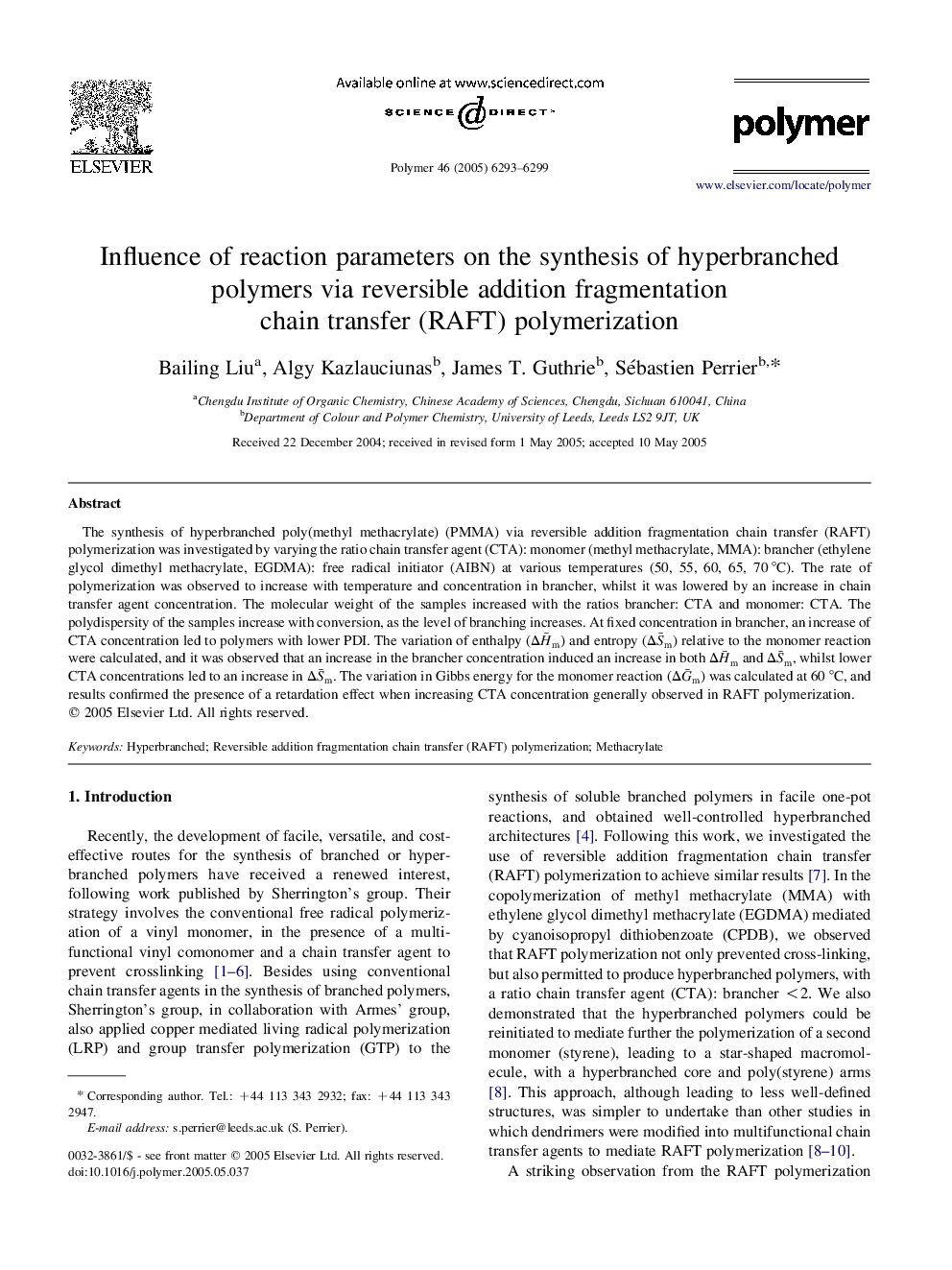| Article ID | Journal | Published Year | Pages | File Type |
|---|---|---|---|---|
| 5187008 | Polymer | 2005 | 7 Pages |
The synthesis of hyperbranched poly(methyl methacrylate) (PMMA) via reversible addition fragmentation chain transfer (RAFT) polymerization was investigated by varying the ratio chain transfer agent (CTA): monomer (methyl methacrylate, MMA): brancher (ethylene glycol dimethyl methacrylate, EGDMA): free radical initiator (AIBN) at various temperatures (50, 55, 60, 65, 70 °C). The rate of polymerization was observed to increase with temperature and concentration in brancher, whilst it was lowered by an increase in chain transfer agent concentration. The molecular weight of the samples increased with the ratios brancher: CTA and monomer: CTA. The polydispersity of the samples increase with conversion, as the level of branching increases. At fixed concentration in brancher, an increase of CTA concentration led to polymers with lower PDI. The variation of enthalpy (ÎH¯m) and entropy (ÎS¯m) relative to the monomer reaction were calculated, and it was observed that an increase in the brancher concentration induced an increase in both ÎH¯m and ÎS¯m, whilst lower CTA concentrations led to an increase in ÎS¯m. The variation in Gibbs energy for the monomer reaction (ÎG¯m) was calculated at 60 °C, and results confirmed the presence of a retardation effect when increasing CTA concentration generally observed in RAFT polymerization.
